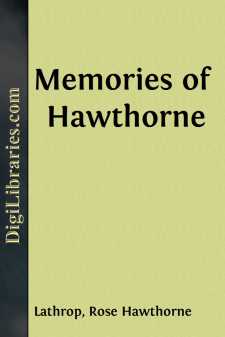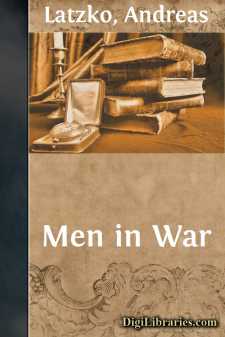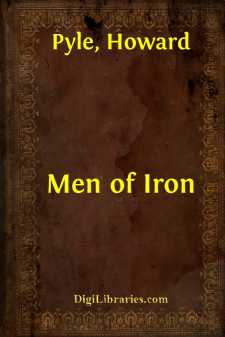Fiction
- Action & Adventure 180
- Biographical 15
- Christian 59
- Classics 6965
- Coming of Age 5
- Contemporary Women 3
- Erotica 8
- Espionage/Intrigue 12
- Fairy Tales, Folklore & Mythology 236
- Family Life 169
- Fantasy 117
- Gay 1
- General 596
- Ghost 32
- Historical 808
- Horror 43
- Humorous 160
- Jewish 25
- Legal 4
- Medical 22
- Mystery & Detective 315
- Political 49
- Psychological 41
- Religious 64
- Romance 159
- Sagas 11
- Science Fiction 730
- Sea Stories 113
- Short Stories (single author) 537
- Sports 10
- Suspense 1
- Technological 8
- Thrillers 2
- Urban Life 31
- Visionary & Metaphysical 1
- War & Military 173
- Westerns 199
Fiction Books
Sort by:
CHAPTER I. The winter of 1633 had set in with unusual severity throughout Suabia and Bavaria, though as yet scarcely advanced beyond the first week of November. It was, in fact, at the point when our tale commences, the eighth of that month, or, in our modern computation, the eighteenth; long after which date it had been customary of late years, under any ordinary state of the weather, to extend the...
more...
CANADA, 1882. "Are hearts here strong enough to found A glorious people's sway?"Ask of our rivers as they boundFrom hill to plain, or ocean-sound, If they are strong to-day?If weakness in their floods be found, Then may ye answer "Nay!" "Is union yours? may foeman's might Your love ne'er break or chain?"Go see if o'er our land the flightOf Spring...
more...
CHAPTER I THE HAWTHORNES AND THE PEABODYS To my lot have fallen sundry letters of my mother's, received in youth by her sisters and friends, and by her husband and others in later life. I have often read over these magic little pictures of old days, and each time have felt less inclined to let them remain silently in the family. The letters are full of sunshine, which is not even yet in the least...
more...
by:
Various
A Brother's Memories By John Cunningham, D.D. The most interesting and potent fact within the range of human knowledge is personality, and in the person of Jane Cunningham Croly (Jenny June) a potency was apparent which has affected the social life of more women, perhaps, than any other single controlling factor of the same period. Jane Cunningham was born in Market Harborough, Leicestershire,...
more...
by:
Andreas Latzko
OFF TO WAR The time was late in the autumn of the second year of the war; the place, the garden of a war hospital in a small Austrian town, which lay at the base of wooded hills, sequestered as behind a Spanish wall, and still preserving its sleepy contented outlook upon existence. Day and night the locomotives whistled by. Some of them hauled to the front trains of soldiers singing and hallooing,...
more...
by:
Roland Pertwee
CHAPTER 1. DISSOLUTION. At a pawnshop in the Gray's Inn Road, Richard Frencham Altar disposed of the last of his worldly goods. Four suits from a tailor in Saville Row, two pairs of shoes in brown and patent by a craftsman of Jermyn Street, some odds and ends of hosiery, a set of dressing table brushes with black monograms on ivory and the gold cigarette case Doreen had given him on the day of...
more...
by:
Howard Pyle
CHAPTER 1 Myles Falworth was but eight years of age at that time, and it was only afterwards, and when he grew old enough to know more of the ins and outs of the matter, that he could remember by bits and pieces the things that afterwards happened; how one evening a knight came clattering into the court-yard upon a horse, red-nostrilled and smeared with the sweat and foam of a desperate ride—Sir John...
more...
by:
Stephen Crane
STEPHEN CRANE: AN ESTIMATE It hardly profits us to conjecture what Stephen Crane might have written about the World War had he lived. Certainly, he would have been in it, in one capacity or another. No man had a greater talent for war and personal adventure, nor a finer art in describing it. Few writers of recent times could so well describe the poetry of motion as manifested in the surge and flow of...
more...
No News. None at all. Understand that, please, to begin with. That you will at once, and distinctly, recall Dr. Sharpe—and his wife, I make no doubt. Indeed, it is because the history is a familiar one, some of the unfamiliar incidents of which have come into my possession, that I undertake to tell it. My relation to the Doctor, his wife, and their friend, has been in many respects peculiar. Without...
more...
In a certain quiet and sequestered nook of the retired village of London—perhaps in the neighbourhood of Berkeley Square, or at any rate somewhere near Burlington Gardens—there was once a house of entertainment called the "Bootjack Hotel." Mr. Crump, the landlord, had, in the outset of life, performed the duties of Boots in some inn even more frequented than his own, and, far from being...
more...











